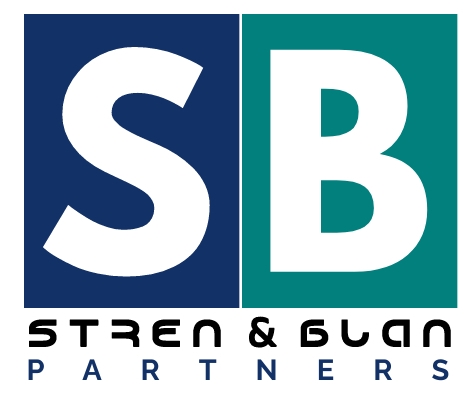INTRODUCTION
The National Electricity Regulatory Commission (NERC or the “Commission”), in a bid to boost investment and accelerate mini-grid deployment, issued a Mini Grid Regulations in 2016 (2016 Regulations) pursuant to the regulatory authority vested in it by the Electric Power Sector Reform Act 2005.
On 29th December 2023, NERC issued the Mini-Grid Regulations for 2023 (the 2023 Regulations), repealing the Mini-Grid Regulations of 2016. The 2023 Regulationsintroduces notable additions to the Nigerian Electricity Supply Industry (NESI) and seeks to address the concerns of stakeholders on the takeover activities of the main grid operators and the operational terrain between distribution companies (Discos) and mini grid operators.
This article provides a comprehensive review of NERC’s2023 Mini-Grid Regulations, highlighting notable additions and enhancements to the regulatory framework governing mini-grid operations in Nigeria.
NOTABLE AMENDMENTS TO THE MINI-GRIDREGULATIONS
It is worth mentioning that the 2023 Regulations bear strong similarities with the 2016 Regulations, especially with regards to provisions on the application procedure for a mini-grid permit, accounts, quality of service, environmental protection,data reporting and transparency, which remain unchanged.The key changes on the 2023 Regulations are highlighted in the ensuing paragraphs.
The 2023 Regulations now provides for a 15 business days’ time frame in which a confirmation or consent must be given by the DisCos before the Commission grants any mini-grid holder permit to construct, own, operate, or operate a mini-grid in an underserved area.Where at the lapse of the 15 business days, the DisCo is yet to confirm or consent to the request for confirmation and consent, it shall be deemed that the DisCo has consented to the request of the mini grid developer.
This provision is to expediate the inter-connected mini-grid application process.
The 2023 Regulations now mandates that mini-gridpermit holders provide reports or a combined report for a portfolio of mini-grids at least once every year, except where a different frequency is prescribed by the Commission. This is as opposed to the provision of the repealed Regulation that required that reporting is carried out biannually.
It is worth noting that the 2016 Regulations, which only required reporting once every two years without the option for combined reports, had less onerous reporting obligations. The updated structure under the 2023Regulations emphasizes timely reporting thus improvingthe Commission’s supervision of mini-grid operations and harmonizes with industry best practices.
By the provisions of the 2023 Regulations, a mini-grid permit holder can now transfer, assign, sell, or dispose of all or any part of the permitted business carried out under the permit granted by the NERC, however subject to the prior written consent of NERC.
This framework under the 2023 Regulations outlines the procedure for disposal by any means, necessary documentation required and evidence of the technical capability of the transferee company.
While the 2023 Regulations reiterates that mini-grid operators are to comply with environmental laws, as provided in the 2016 Regulations, the new Regulations provides that a breach in compliance with environmental laws would be treated as an infraction of the 2023 Regulations, and would lead to either the suspension and termination of permit.
Under the 2016 Regulations, a DisCo could extend its operations to any geographical location without any notice to the isolated mini-grid operator within that location. However, the 2023 Regulations now provides that such extension shall only be done, subject to a prior notification to the mini-grid operator, not later than 12 months before the grid extension to the isolated mini-grid. This provision seeks to cure potential disruptionsand loss faced by mini-grid developers when a DisCoexpands its network into an area already served by an isolated mini-grid.
The 2023 Regulations also mandates DisCos to provide adequate compensation to permit holders in the event of an extension to an isolated mini-grid operated under a permit. Upon extension of the DisCos to an isolated mini-grid, the permit holder may elect to either convert to an interconnected mini-grid operator or transfer its distribution assets to the DisCo in return for compensation or continue its operation. Where the permit holder elects to handover the distribution assets, the Disco will have to compensate the mini-grid operator for the assets. Otherwise, the permit holder will be entitledto continue its operations without any disruption or obstruction by the Disco.
The 2023 Regulations now requires mini-grid operators to provide the Commission with monitoring and evaluation (M&E) reports that evaluates their own electricity production, distribution, and impact. Thesereports must be in accordance with the M&E template provided by the commission, or the terms and conditions listed in their registrations or permits for M&E reporting.
This requirement emphasizes how crucial strictmonitoring and accountability are to the mini-grid’s operation. Overall, requiring frequent monitoring and assessment is a proactive move toward encouraging efficiency, sustainability, and transparency in the administration of mini-grid systems.
The provisions of “determination of tariffs” in the 2016 Regulations have been made comprehensive in the 2023Regulations. The 2023 Regulations introduces mini-grid portfolios, allowing portfolio applications for both isolated and inter-connected mini-grids. In line with the portfolio permit applications, the 2023 Regulations also recognises portfolio tariff applications, allowing a single tariff application for all sites under a portfolio of mini–grids. This allows Permit holders to maintain the ability to submit separate tariff applications for every site in a portfolio of mini-grids. Additionally, A uniform tariff control period of five years has also been introduced, which gives tariff regulation clarity and predictability while also being consistent with industry best practices.
CONCLUSION
The 2023 mini-grid regulations mark a pivotal step for the Nigerian power sector. They address shortcomings identified in the 2016 Regulations, providing greater clarity and strengthening the framework for mini-grid development in Nigeria.
While the 2023 Regulations may not have fully addressed all the underlying issues currently being faced in the mini-grid market, they represent a positive step towards attracting and sustaining investments in the power sector.
